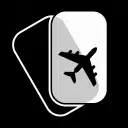What is jet lag? Explained by a private jet broker
You boarded an evening flight from Van Nuys, California to Teterboro, New Jersey before a morning full of meetings in New York City. Only, when you wake up, you’re left fatigued and suffering from a headache that even your morning coffee can’t fix. Chances are you’re experiencing jet lag, and it’s a common problem when traveling long distances.
But what is jet lag and why does it make you drowsy? Here’s what you need to know.
What is jet lag and what does it feel like?
Your daily routine, including everything from when you sleep to when you eat, is tied to your body’s internal clock, also called a circadian rhythm. According to the Sleep Foundation, this cycle directs the biological functions that make you alert in the morning, hungry in the afternoon and tired at night.
When you travel, especially if you’re passing through multiple time zones, your internal clock needs time to adjust. This disruption is called jet lag.
As you fight against your body’s internal clock, the symptoms of jet lag start to appear. While symptoms and their severity vary from person to person and from flight to flight, jet lag symptoms often include:
- An overwhelming desire to sleep during the day
- Being unable to sleep at night
- Irritability
- Feeling slightly disoriented
- Stomach and digestion problems, or ‘gut lag’
Some medical studies have also found a correlation between jet lag and fatigue caused by traveling, changes in cabin pressure and soaring at high altitudes.
Why is it called ‘jet lag’?
No one knows for sure who coined the term, but according to Smithsonian Magazine, reporter Horace Sutton was the first person to put the words in print in a 1966 Los Angeles Times column. What is jet lag? Here’s what Sutton had to say.
“If you’re going to be a member of the Jet Set and fly off to Kathmandu for coffee with King Mahendra, you can count on contracting Jet Lag, a debility not unakin to a hangover,” wrote Sutton. “Jet Lag derives from the simple fact that jets travel so fast they leave your body rhythms behind.”
Why do I feel ill after flying?
Sometimes, jet lag is only part of the problem. When you’re on board a long flight, lower oxygen levels can make you feel even more tired. Combined with the low humidity when flying at altitude, long flights can make even veteran travelers feel unwell.

How can I prevent jet lag?
One of the best ways to avoid jet lag is to rest on your flight. When you charter a private jet for your journey across time zones, you unlock the most comfortable travel experience possible.
With plenty of room to move around, your own private washroom and even sleeping quarters in some larger private jets like the Airbus A380, flying private can help you arrive at your destination feeling refreshed and ready for the day.
Ready to soar across time zones in comfort and safety and say goodbye to the question of what is jet lag? At Stratos Jets, we’re dedicated to delivering an exceptional private aviation experience. Contact our team of expert private flight advisors today at 888-593-9066 to learn more.
Are you ready to book your Dallas and Houston charter flight yet?
Our friendly, expert air charter agents are here to answer questions or start your quote today. Don`t wait, call now and we'll get you on your way to your destination!
Call 888-593-9066











